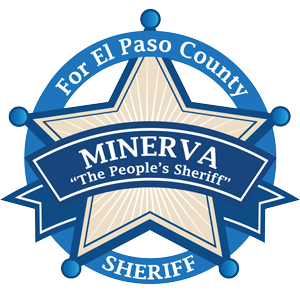Introduction
Voting is a fundamental right and civic duty that empowers citizens to shape their government and influence the direction of public policies. In El Paso, the importance of voting cannot be overstated. Every vote contributes to the collective decision-making process, ensuring that the voices of all community members are heard. This blog explores why every vote counts in El Paso and the broader implications of voter participation for the community.
The Power of the Individual Vote
- Close Elections:
- History has shown that elections can be decided by a handful of votes. In local elections, where voter turnout is typically lower, the impact of each vote is even more pronounced. For example, in a 2017 El Paso City Council runoff, the winning candidate secured victory by just a few dozen votes (Minerva for Sheriff) (Minerva for Sheriff).
- These close races highlight the importance of every single vote and demonstrate how individual participation can directly influence election outcomes.
- Representation and Accountability:
- Voting ensures that elected officials represent the interests and needs of their constituents. When more people vote, elected leaders are more accountable to the community, knowing that their actions and policies are subject to the approval or disapproval of a broad electorate (Minerva for Sheriff) (Minerva for Sheriff).
- This accountability is crucial for maintaining a responsive and transparent government that serves the public effectively.
Impact on Local Issues
- Community Development:
- Local elections often decide on issues that have a direct impact on daily life, such as public safety, education, infrastructure, and healthcare. By voting, residents of El Paso can influence decisions that affect their neighborhoods and overall quality of life (Minerva for Sheriff) (Minerva for Sheriff).
- Participating in local elections ensures that community development projects align with the needs and preferences of the residents.
- Funding and Resources:
- Voting also affects the allocation of funding and resources for public services. Bond measures and tax propositions, which are often decided by local voters, determine the funding levels for schools, parks, libraries, and public transportation (Minerva for Sheriff) (Minerva for Sheriff).
- These decisions have long-term implications for the community’s infrastructure and service quality.
The Role of Civic Engagement
- Strengthening Democracy:
- Active voter participation is fundamental to a healthy democracy. When citizens engage in the electoral process, it strengthens democratic institutions and processes, ensuring that they function effectively and fairly (Minerva for Sheriff) (Minerva for Sheriff).
- High voter turnout reflects a robust democracy where the government truly represents the will of the people.
- Encouraging Informed Voting:
- Civic engagement goes beyond just casting a ballot; it involves staying informed about candidates, policies, and issues. An informed electorate can make better decisions that align with their values and interests, leading to more effective governance (Minerva for Sheriff) (Minerva for Sheriff).
- Voter education initiatives and community discussions are vital for fostering an informed and engaged voting population.
Overcoming Barriers to Voting
- Voter Registration and Access:
- One of the challenges to voter participation is ensuring that all eligible voters are registered and have easy access to polling places. Efforts to simplify voter registration and provide convenient voting options, such as mail-in ballots and early voting, are essential for increasing turnout (Minerva for Sheriff) (Minerva for Sheriff).
- Community organizations in El Paso work tirelessly to assist residents with registration and inform them about voting locations and procedures.
- Combating Voter Apathy:
- Voter apathy, or the belief that one’s vote does not matter, is a significant barrier to participation. Addressing this issue involves highlighting the tangible impact of voting on local and national outcomes and encouraging a culture of civic responsibility (Minerva for Sheriff) (Minerva for Sheriff).
- Success stories from past elections, where voter turnout led to significant changes, can motivate residents to participate in future elections.
Personal Stories of Impact
- Voices from the Community:
- Sharing personal stories from El Paso residents who have seen the impact of their vote can be a powerful tool for encouraging participation. These stories can highlight how voting has brought about positive changes in their lives and communities (Minerva for Sheriff) (Minerva for Sheriff).
- Testimonials from community leaders and everyday voters alike can illustrate the importance of each vote and inspire others to engage in the electoral process.
Conclusion
Every vote counts, especially in a community like El Paso where local issues and elections have a direct impact on residents’ lives. By voting, individuals contribute to the democratic process, ensure fair representation, and influence the allocation of resources and development of policies that shape their community. Overcoming barriers to voting and fostering a culture of civic engagement are essential for a vibrant and responsive democracy.
For more information on the importance of voting and how to participate in upcoming elections, visit Minerva4Sheriff.com.





Leave a Reply